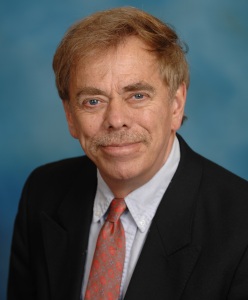 What has the global community learnt from the World Economic Forum’s annual Global Risk Report released last January? The evidence suggests it has not learnt enough to prioritize and take effective steps to mediate risk and, instead, over the past 12 months we have seemed transfixed and bewildered by an onslaught of world events. As a new year begins, we’re confronted by what many are calling “a new world order.”
What has the global community learnt from the World Economic Forum’s annual Global Risk Report released last January? The evidence suggests it has not learnt enough to prioritize and take effective steps to mediate risk and, instead, over the past 12 months we have seemed transfixed and bewildered by an onslaught of world events. As a new year begins, we’re confronted by what many are calling “a new world order.”
The 29 interconnected global risks (divided into five categories: economic, societal, geopolitical, environmental, and technological) cited by the report are portrayed in figure 1 of the report and include (to name a few) food crises, interstate conflict, and extreme weather events. Its authors warned that these risks are becoming more potent, more frequent, more probable, and more interconnected than ever before.
Most risks have a direct bearing on the health and wellbeing of ordinary people—and are therefore relevant to healthcare providers and researchers. Indeed, few professions know more about inequalities, natural disasters, migration, violence, spread of infectious diseases, and pandemics. They are well placed “to know” the levels and trends of wellbeing at the household and community level.
The report warned that two core features of risks are their complexity and interconnectedness, which can create unexpected consequences. It focused on North Africa, the Caribbean, and Latin America as key regions where global stability is threatened by the disempowered citizen feeling disconnected from existing government structures; it said that social instability and unemployment (or underemployment) are the most interconnected risks this year.
Yet high levels of social instability were underestimated (see figure 3) in the US and Europe, where a sense of disenfranchisement, disconnectedness, and distrust of government is predominant. Rising income and wealth inequalities, the collapse of manufacturing industries, the onset of the knowledge economy, shrinking social safety nets, and New Public Management policies have been central to explaining widespread public resentment.
In contrast to the report, a robust body of work by health researchers and clinicians working at the grassroots level in England depicts a pervasive and increasing sense of loss and disenfranchisement, which is replicated in many western countries. This research would not have predicted either Brexit or the election of Trump, yet it has identified the shift in values that underlies both events and the risk of not attending to related social and economic inequalities. This research shows, for example, a steep social gradient in access to effective healthcare, which leads to increased morbidity and decreased life expectancy; North-South inequalities increasing over four decades; and progressive intergenerational divisions adding to social instability.
Research into the geography of despair and geography of unemployment both in Europe and the US shows a deepening and widening of a less secure strata of society (“low waged unskilled workers, the long term unemployed, households dependent on shrinking social benefits, residents of public housing, single parent families, and poorer white populations”)—a strata that would eventually need to make its voice heard.
The World Economic Forum states that we are now entering the fourth industrial revolution in which we will see a “fusion of technologies that blur the lines between physical, digital, and biological spheres”; it will create a level of change humanity has never seen before, affecting economies, countries, and people (especially the health sector). This revolution depends upon the collaboration and cooperation of business, science, civil society, academia, and policy makers.
However, the events of the past 12 months suggest a global community at odds with itself; the rise of inequalities, distrust, self-interest, populism, and nationalism exacerbates already high levels of global risk and threatens to undermine the potential for the creation of substantive public good. We are obviously not prepared to meet the challenges of a “new world order” or the fourth industrial revolution.
The media and many observers have had, by their own account, difficulty reporting on a year that changed the world. Leading world dictionaries inform us that the “word of the year” includes post-truth, paranoid, surreal, chaos, and anxiety—most of which seem relevant to today’s reality. In normal circumstances these challenges would be met with a call for leadership, but, of course, it is the leadership that is part of the problem. Therefore it will have to be a call for moral leadership in the hope that it is both strong and influential.
Dr Chris Simms teaches at Dalhousie University, School of Health Administration, Halifax, Canada; he spent many years living and working in Africa’s health sector.
Competing interests: None declared.
